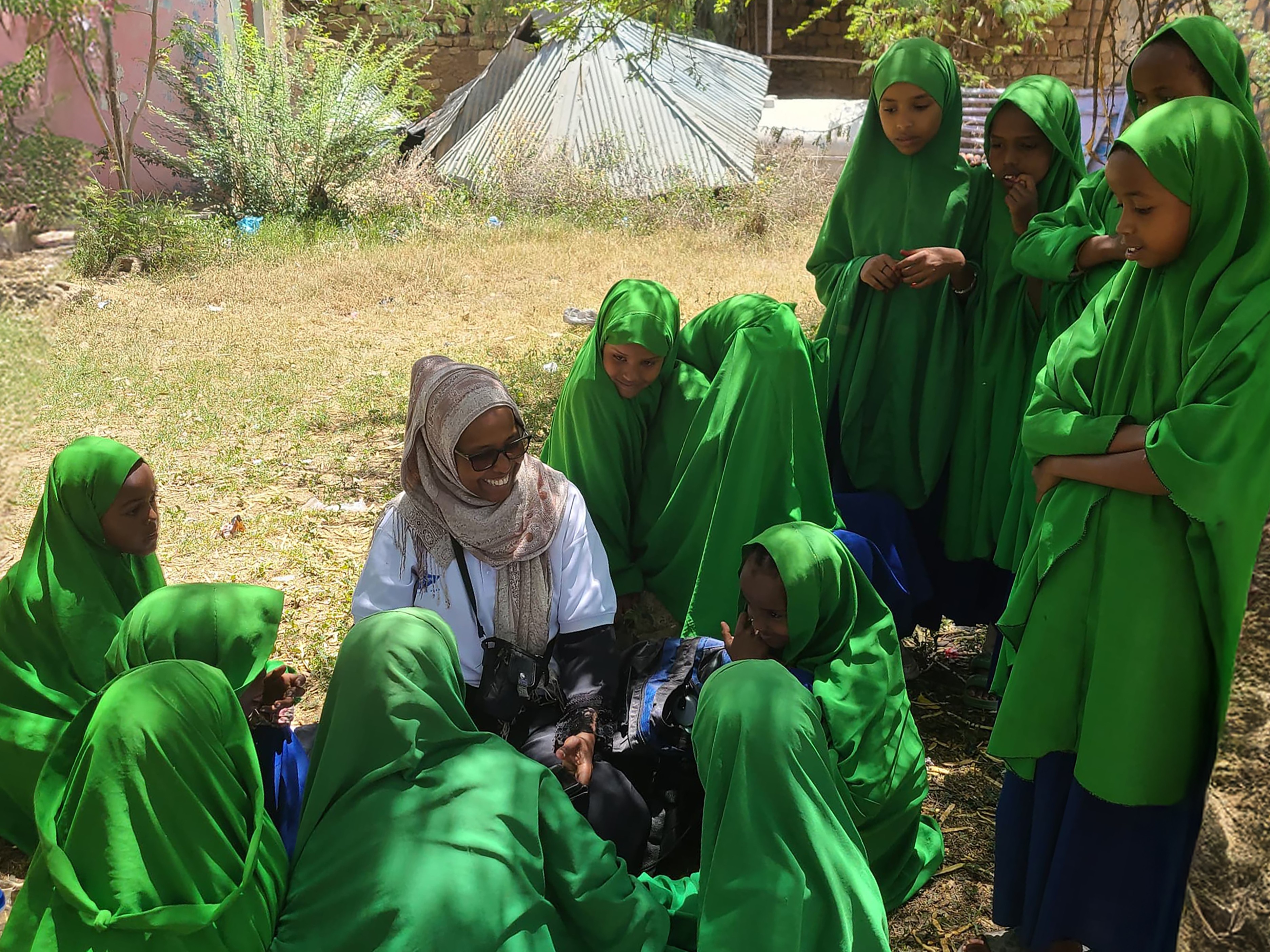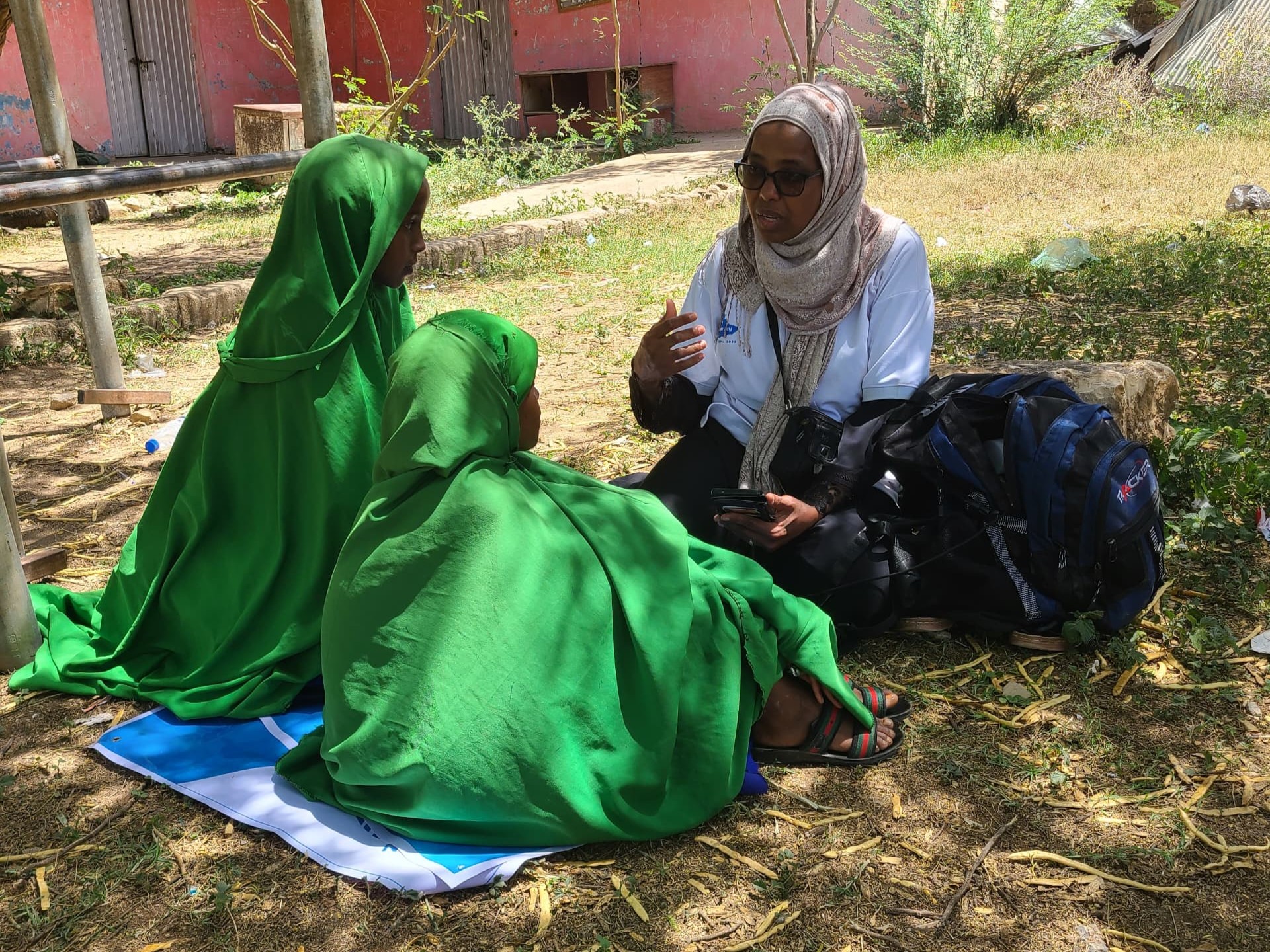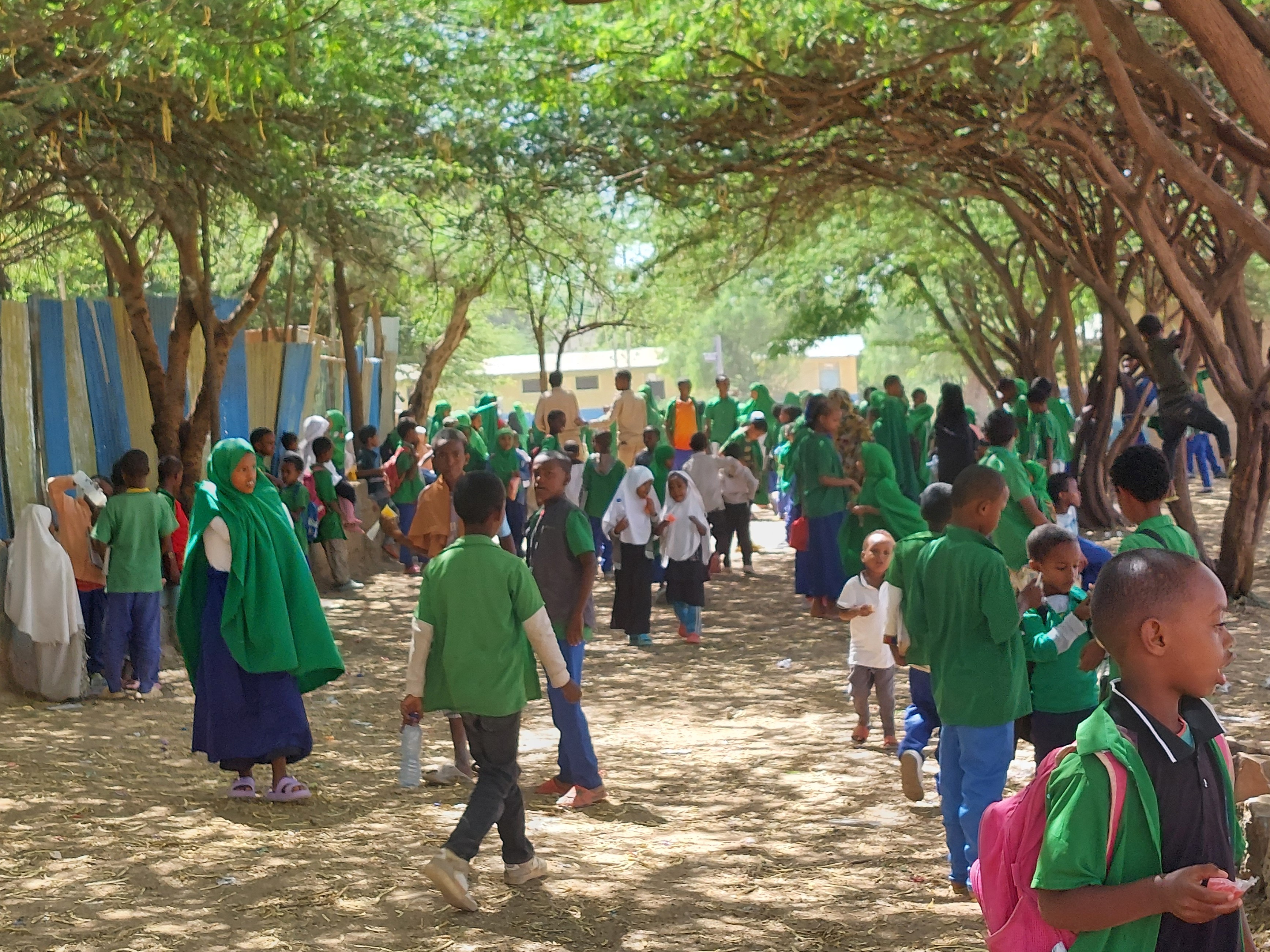Hussein Gire Primary School
In Jijiga, Hussein Gire Primary faces water supply gaps and hygiene risks. Project 12 revealed contamination in containers, limited sanitation, and efforts by staff and students to cope.


Hussein Gire Primary School, located in Jijiga in Ethiopia’s Somali Region, serves 1,505 students and 56 staff. While the school is connected to the municipal piped water network, the service is unreliable—often going dry for several days at a time. During these periods, the school drops to a “limited service” classification under WHO/UNICEF standards, affecting hygiene practices and drinking water access.
As part of the Ethiopia 2025 WASH Survey, the Needs4Water team conducted interviews, inspected infrastructure, and performed water quality testing. Results showed that water at the tap source was generally safe; however, samples taken from student drinking containers indicated possible contamination. This pointed to unsafe water handling and storage practices, a common but addressable risk in school environments.
Despite infrastructure limitations, the school maintains an active WASH club supported by a local NGO. Student volunteers clean toilet blocks and refill handwashing buckets—but such efforts are constrained by broken fixtures, poor drainage, and insufficient facilities. Students often rinse with water only, as soap is frequently unavailable. Teachers reported pooling personal funds to buy soap each month, since the school’s operating budget did not cover hygiene supplies.
Project 12’s assessment at Hussein Gire underscores the importance of pairing community-led initiatives with structural improvements. Recommendations include reinforcing the piped supply, training students in safe water handling, repairing latrine infrastructure, and securing a reliable source of hygiene materials like soap.




